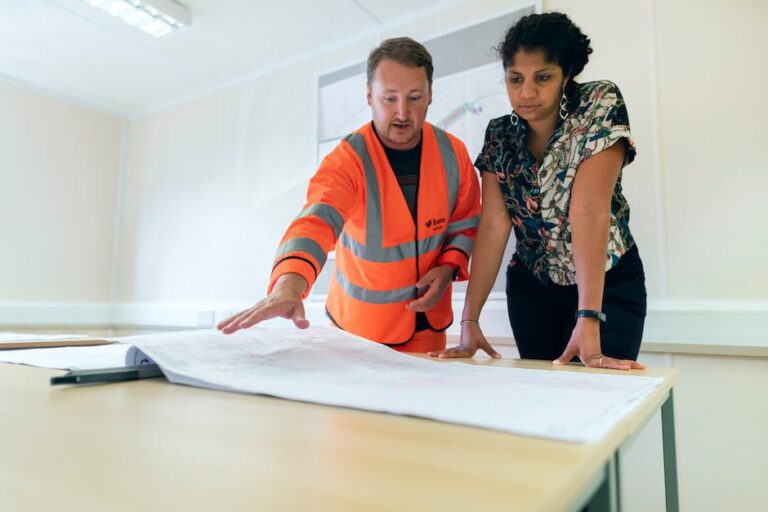Carol Dweck Growth Mindset
A lot of people talk about the value of hard work, persistence, and motivation, but only a few talk…

A lot of people talk about the value of hard work, persistence, and motivation, but only a few talk about the importance of understanding how our mind works and how that affects our actions.
Carol Dweck, Stanford psychologist, writes and speaks about a concept she calls the “growth mindset.” In her book, Mindset: The New Psychology of Success, she explains that this is not a simple formula for success, but rather a way of thinking about human ability and life in general.
This growth mindset is defined as the belief that we can all change and improve ourselves through our effort. That effort can be things like reading up on something you’re struggling with or working hard at a job you hate until you find another one you love. The growth mindset is not just an acceptance of where you are now, but also an anticipation of where you can go from here.
Dweck says that people with a growth mindset believe that we all have the potential to develop wisdom and creativity if we are willing to put in the effort. She says that people with a fixed (or “fixed”) mindset believe that we are born with limited talent and ability; therefore, hard work does not pay off.
Three aspects of growth mindset

Carol Dweck has outlined three aspects of growth mindset:
1. We all have the capacity to constantly learn, but we must first believe that we can learn. If you believe you cannot learn, then you will not attempt to learn new things.
2. Learning is effortful. You have to try hard and invest time and energy to get something new in your head or into your head. You can’t just read a book and understand it; you have to think about it and relate it to what you know.
3. Mastery takes time and effort. It’s not possible to master something quickly, nor is it necessarily the goal. The goal is simply to keep learning, which requires time and effort on your part.(source)
These three aspects of growth mindset are extremely important in understanding how to develop it.
Examples of people with growth mindset
People with growth mindset believe that everyone can learn almost anything with the right attitude and experience. They believe that a person’s talent is developed through hard work, not born inside them.
They also believe that learning is a process that continues throughout a person’s life. There are no mistakes or failures in their eyes; only lessons learned.
People with growth mindset are also open to criticism. They understand that criticism is someone’s opinion about their performance and does not mean they are incompetent or incapable.
They accept feedback and are willing to put in the work to improve. Those with growth mindset know that no matter how many times they fail, how hard the task is, or how much criticism they receive, they will eventually succeed. This confidence comes from the belief that they can learn anything if they put in the effort.
Examples of famous quotes related to this topic

“Give me a child until he is seven and I will show you the man.” This famous quote dates back to Roman philosopher Cicero. He was likely referencing the importance of a child’s early childhood education.
Many other well-known individuals have referenced this idea as well. Famous author Mark Twain wrote, “At age 20, we all write poetry; at 30, we compose symphonies; but by 40, we take out the garbage and pay the bills.”
This idea that we are who we are by a certain age is a mindset that holds us back from growing and developing as individuals. We need to learn how to change this perception in order to grow as people.
Carol Dweck, professor of psychology at Stanford University, coined the terms “growth mindset” and has done extensive research on the topic. She defines growth mindset as having an understanding that your talents and abilities can be developed through effort, job seeking out challenges and experiences.
How to develop a growth mindset

Now that you’re aware of the importance of a growth mindset, how do you develop it? Start by thinking about what you’re good at- are you an awesome baker? Are you great at solving puzzles?
Think about how you’ve learned in the past- have you ever taken a class or learned something new and then applied it to something else?
Look for opportunities to learn and grow, especially if they’re outside your comfort zone.
If you’re always in a position where you have to produce the same quality work, try changing up your approach or methods.
Keep an open mind when doing so, and don’t worry if things don’t turn out perfectly- that doesn’t mean you aren’t capable of doing something else, but it might help you discover a new talent.
Use your failures as lessons

Failure is a natural part of life, and as Carol Dweck says, it’s how you handle failure that makes all the difference.
You can learn from failure, but you have to think about it in the right way. You have to understand that a failure means you’re trying something new, and something new can be scary.
If you’re in business, for example, you may invest time and money in a new product or service only to find out it’s not going to work. That’s hard!
But if you think of failure as just that – a failure to succeed at this one thing – then it’s easier to deal with. You can still take away lessons from it that will help you succeed at something else.
In fact, in business, people who are willing to fail are more likely to take chances that pay off big time. That’s what you need to do with your life after divorce.
Challenge yourself
Fitness professionals work hard to master their craft. You should do the same with your fitness lifestyle.
There’s no shame in trying new workouts or classes, asking for help when you need it, or pushing yourself to get better at the exercises.
As you grow in experience and confidence, you’ll find new challenges and ways to push yourself. You will also find new exercises and ways to improve your performance on old ones.
This is a part of the fitness culture that everyone accepts and encourages. Why? Because it makes you better and more confident in your skills.
A growth mindset is important when it comes to fitness. You should always be open to new challenges and ways of improving – both for your own benefit and for the benefit of others who look up to you.
If you have a fixed mindset about something, like “I am not athletic,” then that will prevent you from growing as an athlete.
Focus on progress, not perfection

A Growth Mindset is all about thinking about how you can improve, not about being perfect.
It’s about working hard and improving over time, not being perfect at something from the get-go. And it’s about believing you can improve, not thinking you’re stuck at a certain level of ability.
Carol Dweck explains that a key part of the Growth Mindset is understanding that our skills can be developed through effort and training.
In her book Mindset, she writes: “This belief is fundamental to the way we live our lives. It can be applied to any area of ability, from handling money to dealing with people. It can be applied to situations that are fixed or changing. It can apply to successes and failures.”
The idea is that people with a Growth Mindset believe that they can develop their skills with effort, training, and time. People with a Fixed Mindset believe they either have an ability or they don’t, and there’s nothing they can do to change that.
Foster creativity and collaboration
Now that you’ve encouraged your child to try new things and learn from failure, it’s time to emphasis creativity and collaboration.
Creativity means thinking up new ideas and new ways to do things. Children should be encouraged to try new things and experiment with things they already do.
Teamwork involves more than just reading a book or playing a game – it involves sharing the experience with someone else.
Children should be encouraged to think about how they can help others, whether that’s other children or adults, and how they can work together to achieve a goal.
And most of all, children should be allowed to play independently. Dweck says this is a hard one, as many parents are uncomfortable letting their kids play alone, but it’s important for fostering creativity.Children need time to think about what they’re doing and why, she says.





